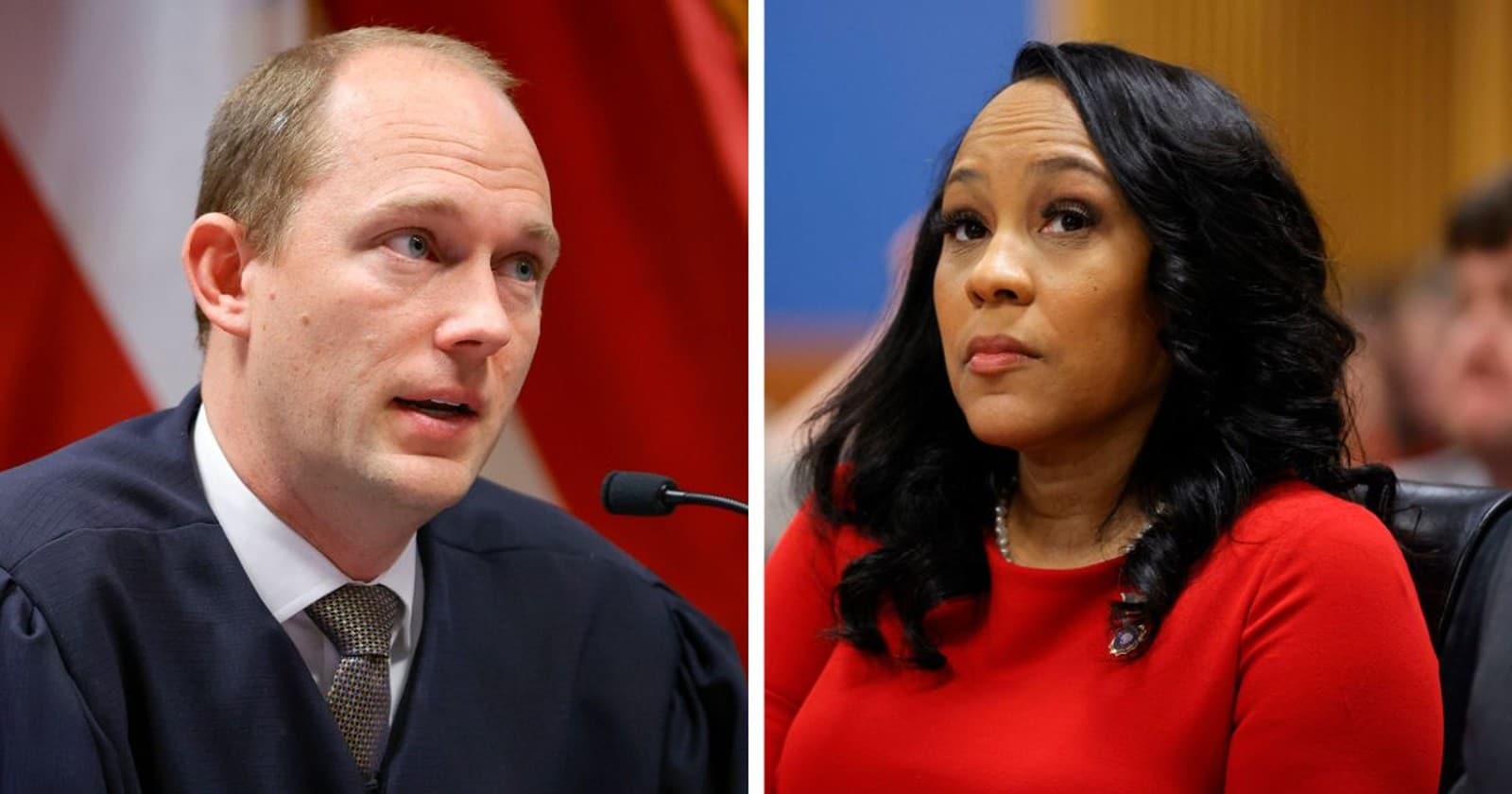OPINION: This article may contain commentary which reflects the author's opinion.
In a recent ruling, attorneys representing one of the co-defendants in the Georgia case of former President Donald Trump have been allowed to argue that Fulton County District Attorney Fani Willis overstepped her authority by filing election-related racketeering charges against him.
Harrison Lloyd, a former leader of the Black Voices for Trump coalition, has been granted a certificate of immediate review by District Judge Scott McAfee. This allows Lloyd to request a review by the Georgia Court of Appeals. The decision by Judge McAfee is unexpected as it contradicts earlier rulings that denied procedural motions aimed at preventing Willis from pursuing specific crimes.
Judge McAfee stated that he was open to considering Lloyd’s argument that Willis’ “election-related” investigation was beyond her jurisdiction. He has previously contended that she “did not have the authority to investigate or bring election-related charges against the Defendant without a referral from the State Election Board,” according to legal filings.
In January, McAfee ruled that Willis could pursue charges without needing a referral from the secretary of state or any other electoral body because he had “concurrent jurisdiction” with the state’s election officials.
The Fulton County judge upheld his decision once more in response to Lloyd’s appeal; however, he decided that the most recent motion for a certificate of review was sufficient to merit review by an appeals court. He stated earlier this week that the earlier ruling granting Willis jurisdiction is “of such importance to the case that immediate review should be had.”
The Georgia Court of Appeals will now have to determine whether Judge McAfee correctly applied the law in areas where defense attorneys have a say in conflicts, giving a district attorney the authority to press charges related to elections without having to go through the customary grand jury process.
“It is undisputed that no referral was sought nor granted,” Floyd’s latest motion reads. “Despite this Court’s explanation of ‘harmony’ amongst these statutes, to hold that the District Attorney holds concurrent jurisdiction with the SEB, and that a referral from the SEB to the District Attorney is not necessary in election-related cases, renders O.C.G.A. § 21-2-35 absolutely meaningless and superfluous.”
Lloyd’s attorneys now have 10 days to submit their motion to the appeals court, which will review it and decide whether to grant an appeal after 45 days.
Floyd, one of the few co-defendants of Trump who was unable to post bail in the case, said that his conditions in Fulton County’s jail were more appropriate for a third-world nation than a U.S. jail cell.
DA Willis made headlines again when she said the “train is coming” when speaking about the prosecution of former President Donald Trump and his 14 co-defendants.
Willis, who almost faced disqualification in the previous president’s election subversion case due to her romantic relationship with her former lead prosecutor, has stated that she continued to work on the case during the two months of related court action and that the disqualification effort did not hinder her progress.
Several legal analysts are sounding the alarm about her comments.
Atlanta defense attorney Andrew Fleischman told Salon that Willis “should not” be making those comments.
“Prosecutors announcing at the outset of a case who they’re indicting, the charges being brought and why is fine, but they should not make public statements that have no legitimate law enforcement purpose, even in the context of a political campaign,” Fleischman said.
“They strengthen arguments for gag orders and disqualification, and they harm the public’s trust that this trial is about holding people accountable for crimes they have committed, rather than as part of an overall political strategy,” Fleischman added.
